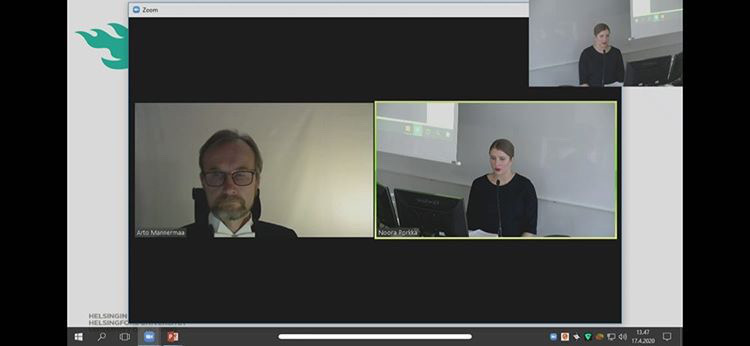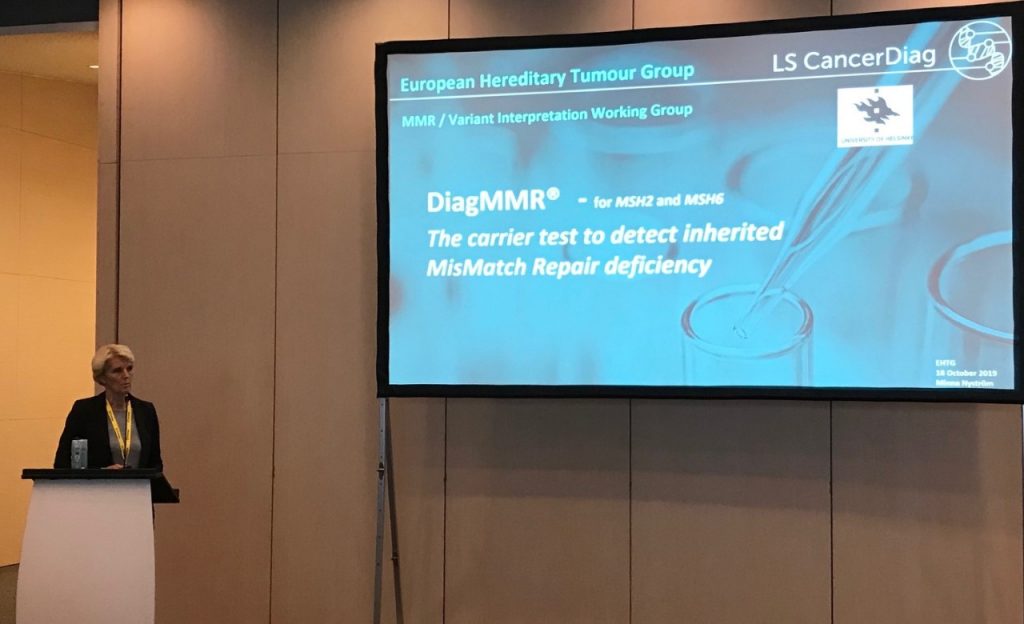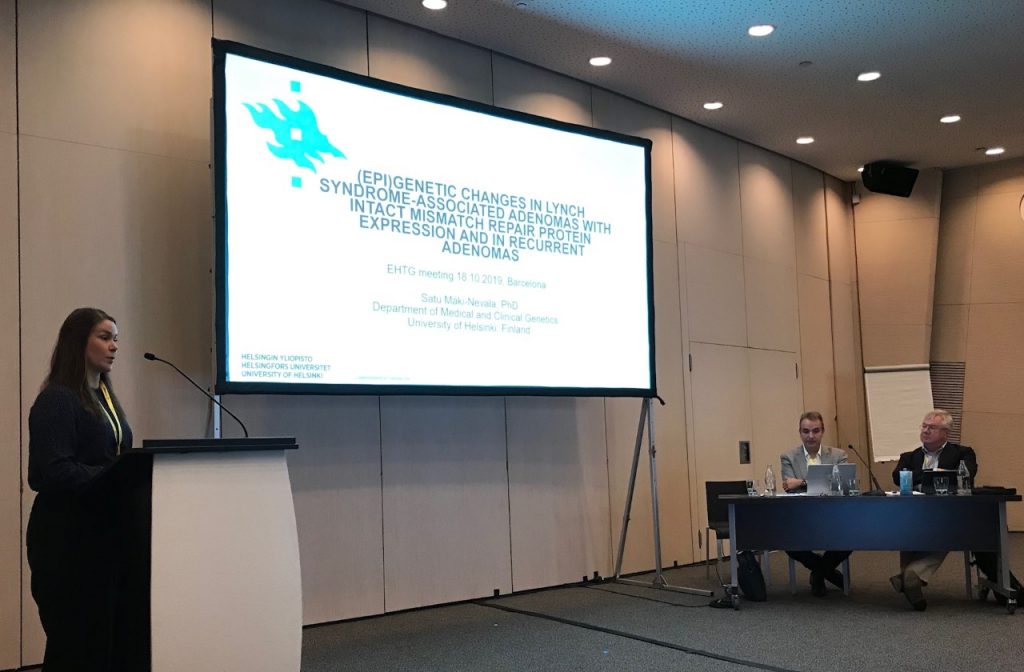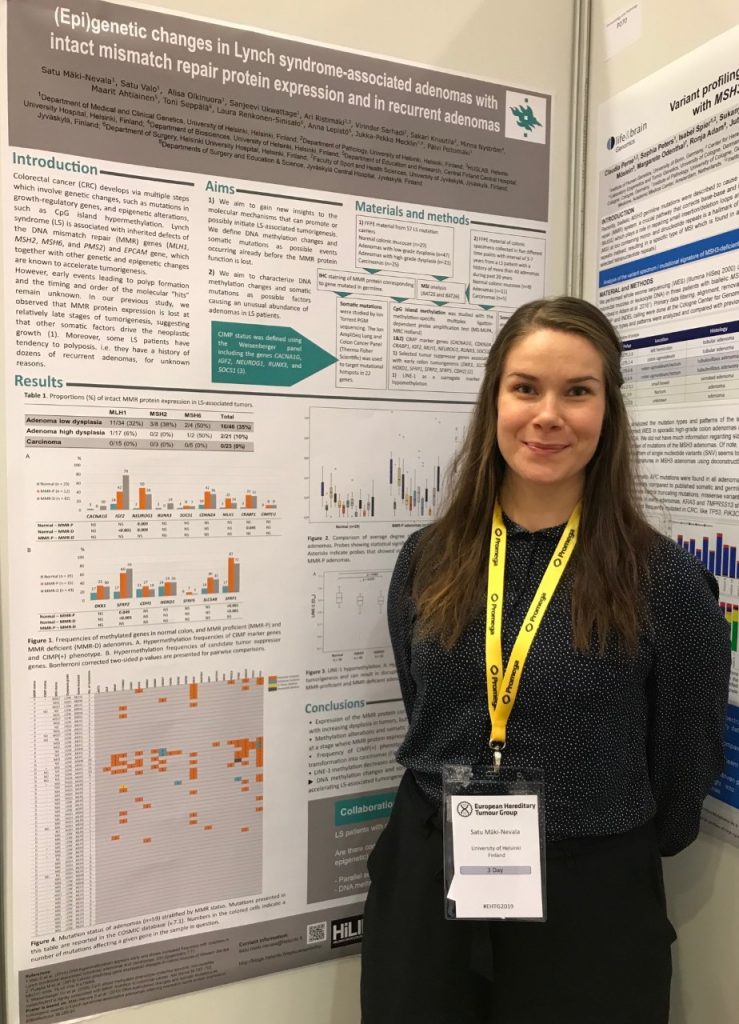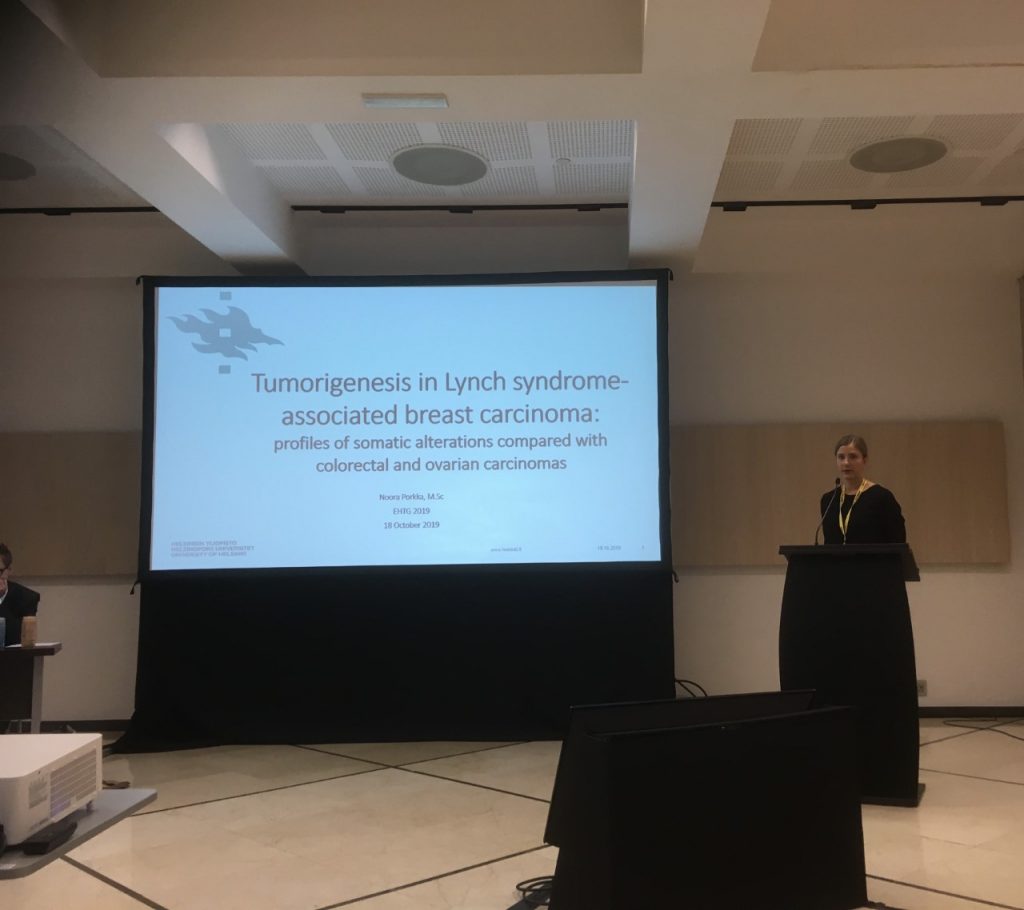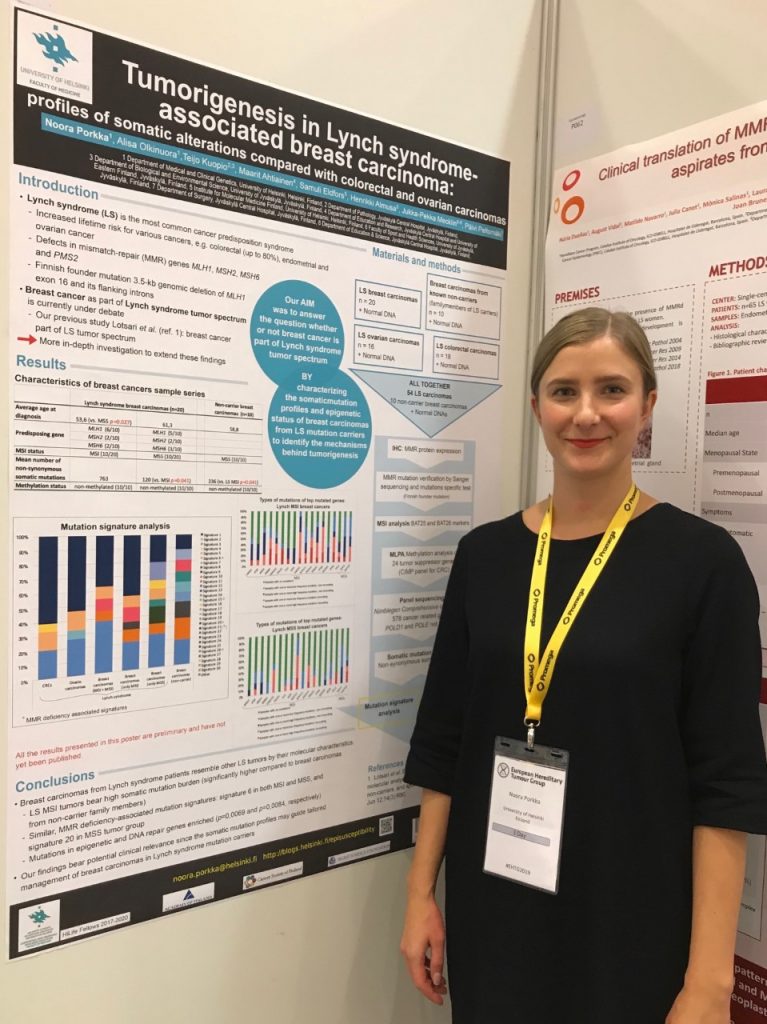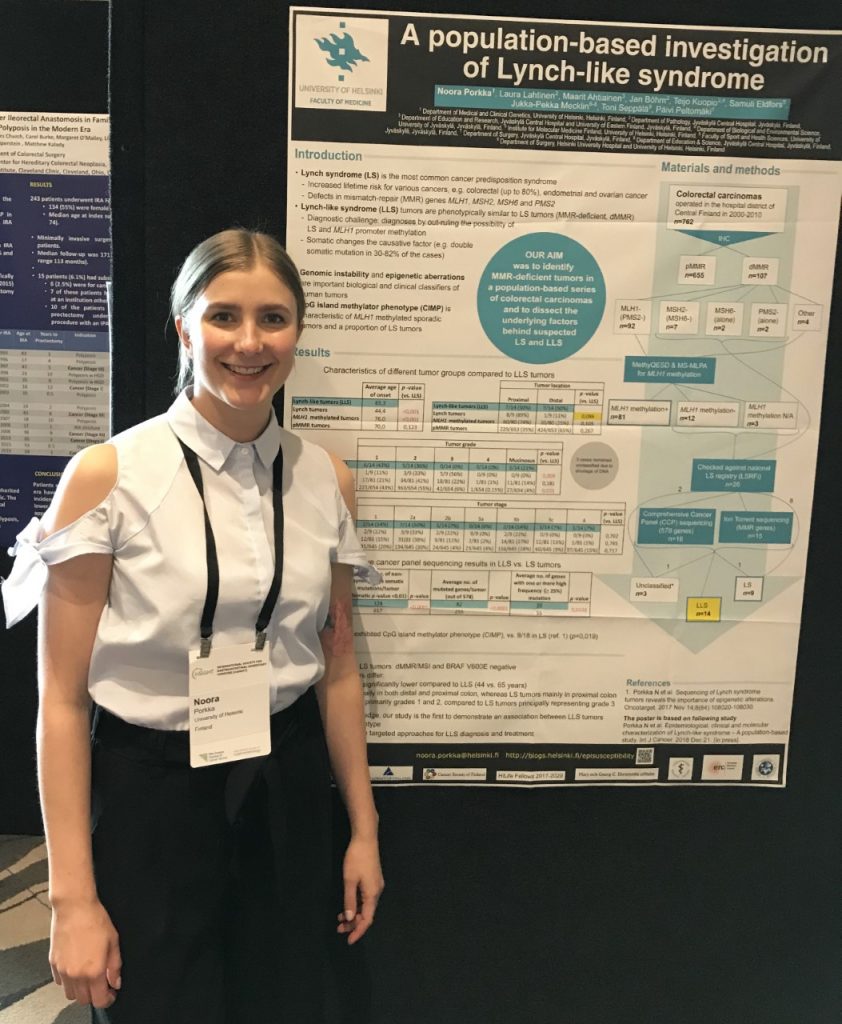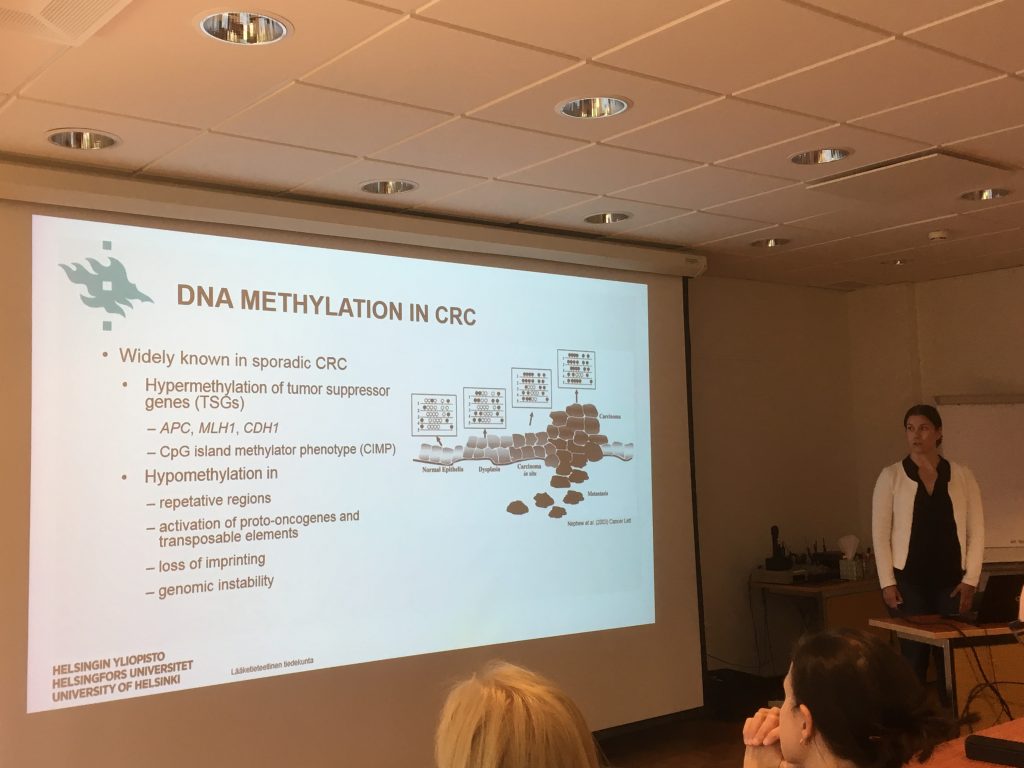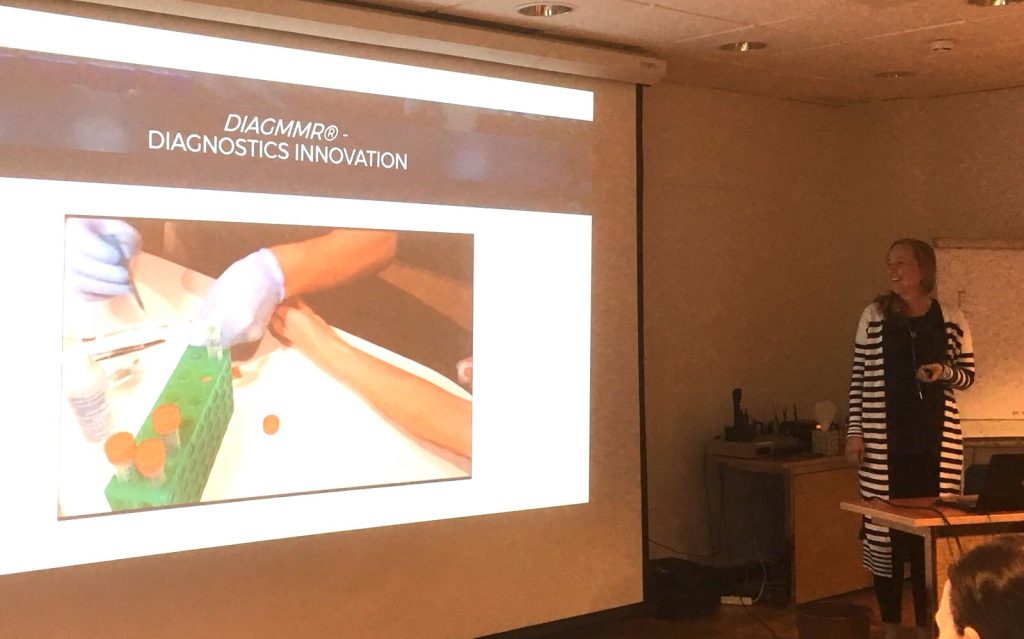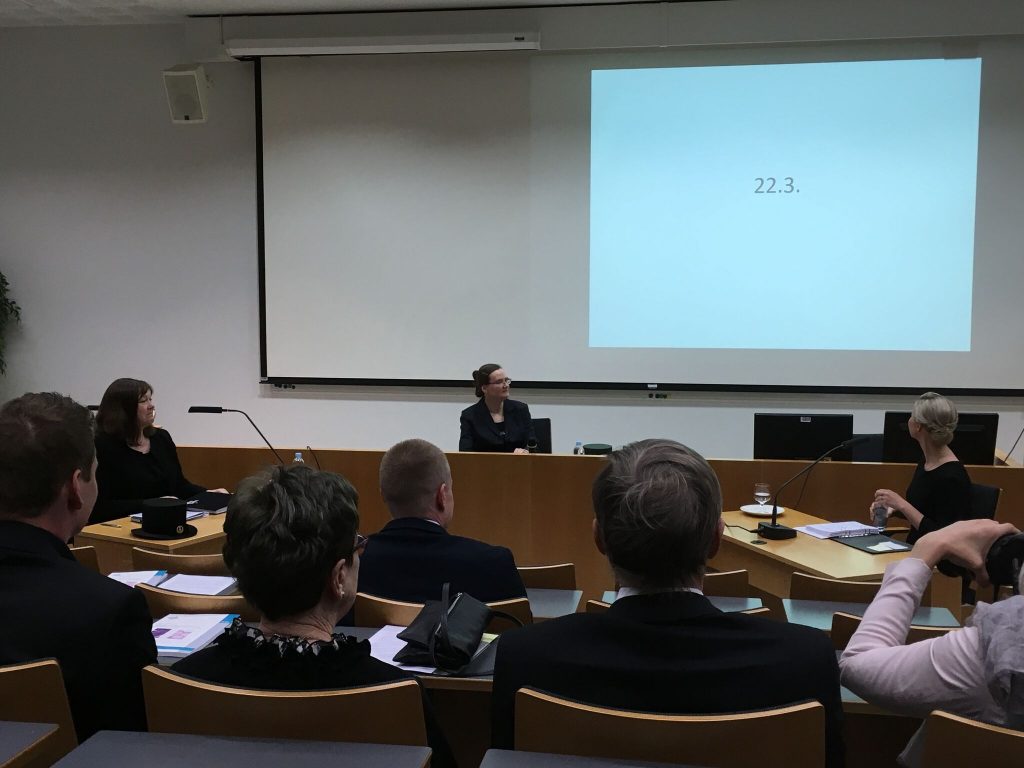Porkka NK, Olkinuora A, Kuopio T, Ahtiainen M, Eldfors S, Almusa H, Mecklin JP, Peltomäki P.
Abstract
Inherited DNA mismatch repair (MMR) defects cause predisposition to colorectal, endometrial, ovarian, and other cancers occurring in Lynch syndrome (LS). It is unsettled whether breast carcinoma belongs to the LS tumor spectrum. We approached this question through somatic mutational analysis of breast carcinomas from LS families, using established LS-spectrum tumors for comparison. Somatic mutational profiles of 578 cancer-relevant genes were determined for LS-breast cancer (LS-BC, n = 20), non-carrier breast cancer (NC-BC, n = 10), LS-ovarian cancer (LS-OC, n = 16), and LS-colorectal cancer (LS-CRC, n = 18) from the National LS Registry of Finland. Microsatellite and MMR protein analysis stratified LS-BCs into MMR-deficient (dMMR, n = 11) and MMR-proficient (pMMR, n = 9) subgroups. All NC-BCs were pMMR and all LS-OCs and LS-CRCs dMMR. All but one dMMR LS-BCs were hypermutated (> 10 non-synonymous mutations/Mb; average 174/Mb per tumor) and the frequency of MMR-deficiency-associated signatures 6, 20, and 26 was comparable to that in LS-OC and LS-CRC. LS-BCs that were pMMR resembled NC-BCs with respect to somatic mutational loads (4/9, 44%, hypermutated with average mutation count 33/Mb vs. 3/10, 30%, hypermutated with average 88 mutations/Mb), whereas mutational signatures shared features of dMMR LS-BC, LS-OC, and LS-CRC. Epigenetic regulatory genes were significantly enriched as mutational targets in LS-BC, LS-OC, and LS-CRC. Many top mutant genes of our LS-BCs have previously been identified as drivers of unselected breast carcinomas. In conclusion, somatic mutational signatures suggest that conventional MMR status of tumor tissues is likely to underestimate the significance of the predisposing MMR defects as contributors to breast tumorigenesis in LS.
KEYWORDS:
DNA mismatch repair; Lynch syndrome; MSI; breast carcinoma; somatic mutation
Oncotarget. 2020 Apr 7;11(14):1244-1256.
PubMed ID: 32292574
